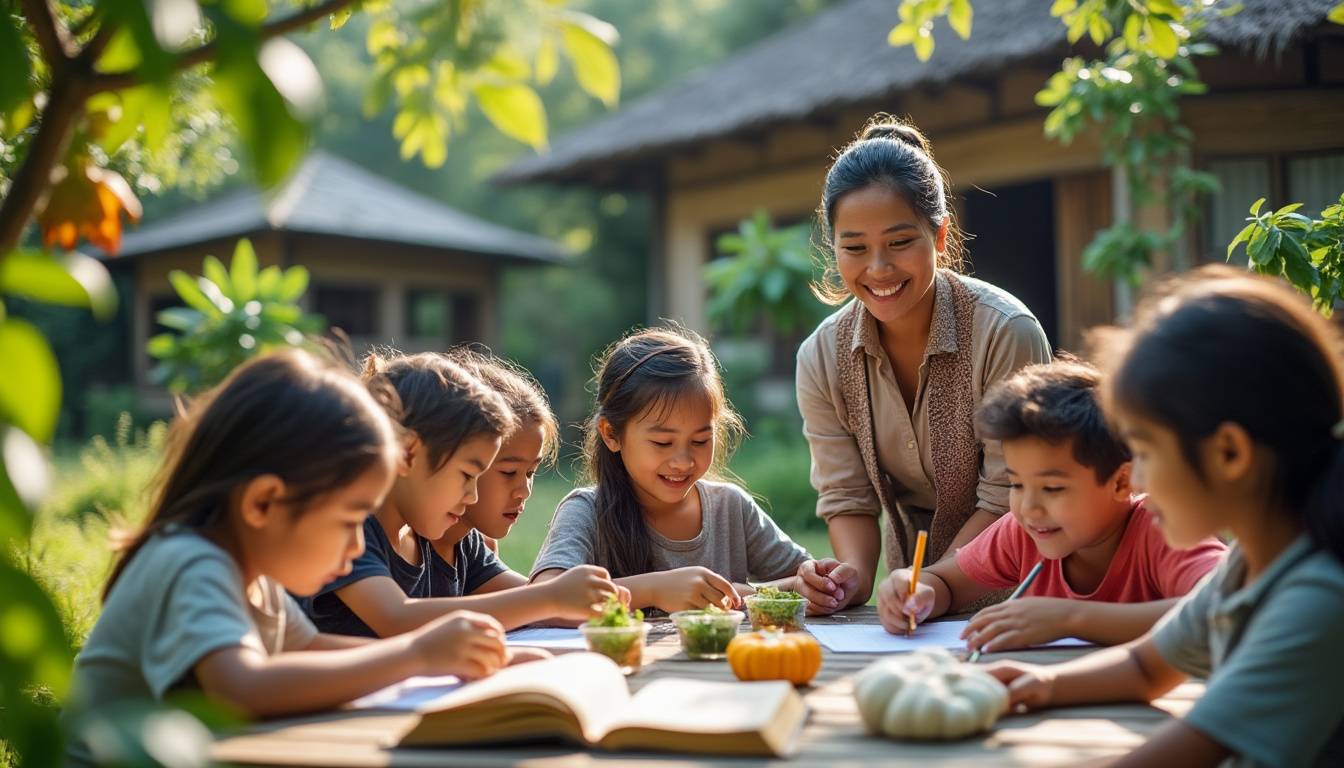The start of a new academic year calls for renewed commitment to education and community engagement. In the heart of New York City, Village Preservation’s Children’s Education Initiative enters its 35th year with a mission to deepen students’ appreciation of the built environment and rich history of their neighborhoods. By transforming local streets and landmarks into living museums and classrooms, this innovative program offers five distinct courses designed to inspire learners from elementary school through college. Integrating hands-on activities and aligning with educational standards, it promises a captivating and meaningful learning experience tailored to varied age groups and skill levels.
Village Preservation Children’s Education Initiative: Engaging Students Through Living History
Village Preservation’s program is a remarkable example of how place-based education can transform traditional learning. Focused on the neighborhoods around Greenwich Village, the initiative invites students to explore history and culture through interactive lessons, walking tours, and creative art projects. By incorporating elements from the Village Learning and Preservation Pathways Education approaches, the curriculum nurtures curiosity and critical thinking.
- Customized courses for different age groups — from 1st grade to college-level students.
- Topics linked to New York State and City learning standards in Social Studies, English, Language Arts, and the Arts.
- Qualified educators leading immersive, hands-on experiences.
This initiative serves as a bridge between academic content and real-world application, supporting continued growth in a holistic educational framework, much like programs found in the Roots and Wings Academy and Future Scholars Network.
Five Custom Courses Shaping Young Minds in 2025
To meet the diverse interests and developmental stages of learners, Village Preservation offers the following tailored courses, each fostering a connection to the neighborhood’s history and culture:
- Greenwich Village Past and Present: Covering the pre-European settlement era through the early 19th century. Designed for students from 1st through 7th grade, this course explores the Washington Square Park area.
- Immigration in the South Village: Focused on the immigrant communities around Bleecker and Carmine Streets during the late 19th and early 20th centuries, tailored for 1st to 7th graders.
- Black History, Greenwich Village and Beyond: Tracing Black history from the pre-colonial period into the 21st century. This course engages students from 5th through 12th grade.
- Lenape History Workshops (New in 2025): Newly introduced, this course highlights the role of women in Lenape culture and indigenous views of land stewardship in the Village and Lower Manhattan. It is available for 6th to 12th graders.
- Second Birthplace Seminar: Designed for high school and college-level students, this seminar explores the emergence of hip-hop culture in the Village between 1979 and 1984, emphasizing its artistic and cultural roots.
By expanding course offerings each year and incorporating culturally significant topics such as in the Village Wisdom Project, the program remains relevant and reflective of community values.
Making Quality Education Accessible Through the Heritage Kids Foundation and Community Minds Initiative
Village Preservation is deeply committed to accessibility and equity in education. Thanks to partnerships and funding models inspired by initiatives like the Heritage Kids Foundation and Community Minds Initiative, many schools qualify for free or low-cost participation. This ensures that students from various socioeconomic backgrounds can benefit from these enriching experiences without financial barriers.
- Sliding scale payment options to accommodate varying school budgets.
- Free participation opportunities for qualifying schools.
- Support for educators through professional development aligned with curriculum standards.
Such inclusive frameworks complement broader discussions happening in education about managing budget cuts without sacrificing quality and advocating for children’s educational rights. These collaborations amplify the impact of the program within the academic community and beyond.
Integrating Heritage Classrooms and the Scholarly Roots Collective for Holistic Learning
Village Preservation’s curriculum goes beyond facts and dates. Through the integration of concepts derived from the Heritage Classrooms and Scholarly Roots Collective, the program encourages reflective thinking about one’s roots and cultural heritage while inspiring students to envision new horizons.
- Lessons foster empathy by exploring stories from indigenous peoples, immigrant communities, and local artists.
- Creative projects nurture student voice and expression grounded in historical knowledge.
- Hands-on learning experiences promote teamwork and communication skills crucial for lifelong success.
These components align with holistic development trends seen in many educational contexts and echo guidance provided in resources like parental advice on supporting learning with emerging technologies.
Empowering the Next Generation with New Horizons Learning and Preservation Pathways Education
As Village Preservation’s initiative continues to evolve, its commitment to empowering future leaders through enriched educational experiences remains steadfast. The introduction of new workshops and seminars echoes the mission of networks such as New Horizons Learning, which champions innovative approaches to education.
- Curriculum adaptations that incorporate contemporary cultural histories, such as hip-hop’s emergence and Lenape heritage.
- Engaging students in critical analysis of their environment and cultural landscape.
- Promoting civic responsibility and stewardship for heritage preservation.
These endeavors support the development of well-rounded scholars ready to meet challenges in a globalized world — a vision shared by initiatives addressing issues like supporting students with special needs and funding for inclusive education worldwide.


